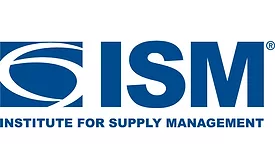Home » Keywords: » supply chain
Items Tagged with 'supply chain'
ARTICLES
Flavor suppliers detail how beverage-makers can balance supply chain, costs with exotic fruits
Read More
Supply chain concerns impact flavors market
Beverage-makers aim to overcome supply chain issues, deliver consistent, quality-flavored products
June 12, 2025
Institute for Supply Management expands end-to-end supply chain
Updated mission, offerings to serve practitioners across global supply chain
March 19, 2025
Shrink, stretch labels modernize beverage packaging
Manufacturers make strides to meet sustainability demands
January 28, 2025
Major measurement techniques determine warehouse efficiency, costs
Utilization, performance and productivity play key roles in beverage facilities
September 18, 2023
Operations Perspective
Calculating delivery costs offers realistic benchmarks
Numerous interfaces need consideration when calculating delivery
September 1, 2023
Operations Perspective
Safety, organization support ideal beverage working environment
Review, analysis ensure protocols continue to be met
July 20, 2023
Operations Perspective
Personnel adapt within beverage operations
Changes in packaging, warehousing prompt shifts with workers
June 27, 2023
Operations Perspective
Inventory innovations for beverage warehouses
Numerous variables impacting future of inventory
June 2, 2023
Assessing the progress of beverage operations technology
All steps of pre-distribution essential part for success
March 15, 2023
Elevate your expertise in the beverage marketplace with unparalleled insights and connections.
Join thousands of beverage professionals today. Shouldn’t you know what they know?
JOIN NOW!Copyright ©2026. All Rights Reserved BNP Media.
Design, CMS, Hosting & Web Development :: ePublishing






